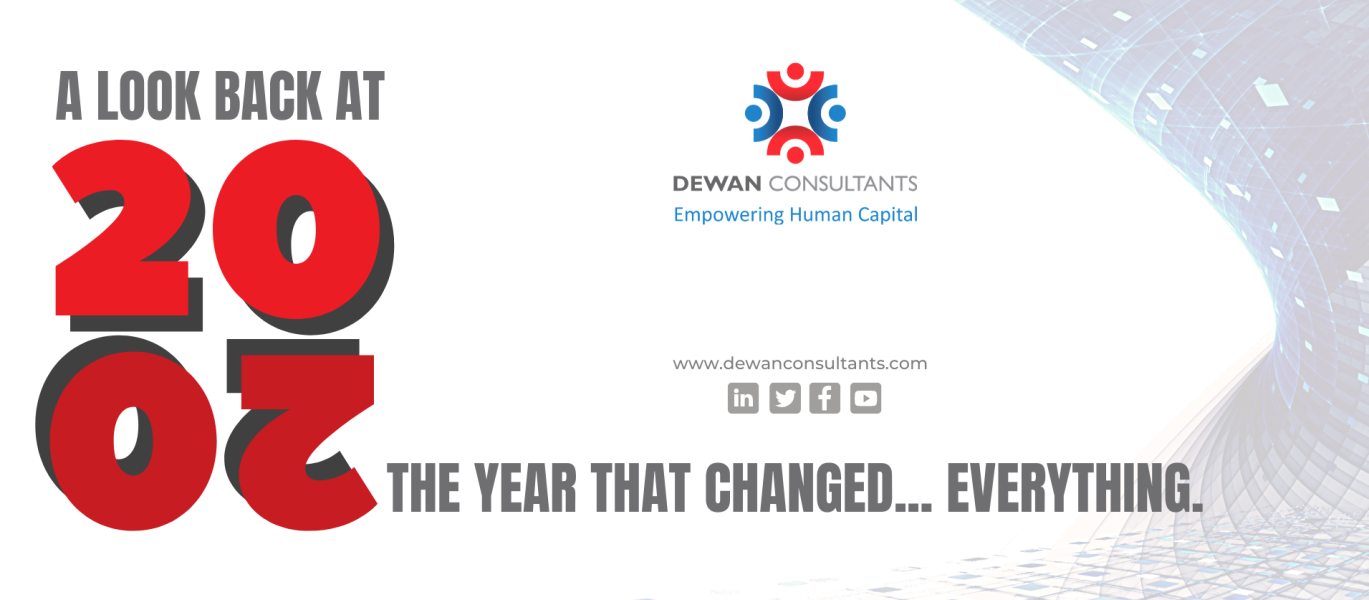 February 15, 2021
February 15, 2021

A little over three months ago, along with the rest of the world, we watched in disbelief as COVID-19 took hold and changed our lives as we knew it.
Despite the tragedy and uncertainty, a strong undercurrent of hope ran parallel as individuals and communities responded with empathy, strength and cooperation. Businesses took fast action to protect their workers’ health and safety, establish essential services, and deploy workforce strategies to support workers in real-time despite the many challenges. Among them was/is the need to stay distinctly human in a technology-driven on-demand world.
The unprecedented pandemic has reinforced our conviction that individual concerns are not separate from technological advances at all, but rather integral to organizations looking to capture the full value of the technologies they’ve put in place.
COVID-19 has challenged business leaders to do three things at once: stage the return to work, understand and leverage the advancements they enacted during the crisis, and chart a new path forward.
Businesses can now capitalize on all that they have experienced and learned over the past few months and leverage the opportunity to return to work by designing the future of work, employing the lessons, practices, and goodwill they built during their accelerated crisis response. Below, we provide a view on how to start that process a set of reflections, recommendations, and frameworks which we believe are more critical than ever as organizations head toward recovery from the COVID-19 crisis.
Catalyst to productivity
COVID-19 reminded us that people are motivated at the highest levels when they can connect their work contributions to a higher purpose and mission. Consider, for instance, how workers at some consumer products companies have found meaning and inspiration in their jobs as their companies increased production of (or in some cases, pivoted to start developing) disinfectants and sanitizers. People want to contribute to their organizations when they understand how their unique talents, strengths, and contributions are making an impact on larger goals.
To strengthen the link between belonging and organizational performance, organizations need to do more than treat their workers fairly. They must enable a more profound connection, by drawing visible links as to how their contributions are making an impact on the organization and society as a whole.
Focusing on re-skilling and retention
COVID-19 reinforced that it is more important to understand what workers are capable of doing than understanding what they have done before. Through this crisis, the world has had the opportunity to see the resilience and adaptability of the workforce as employees quickly assumed new roles and even contributed to opportunities in different fields and industries.
As they stage the return to work, organizations should now consider how to encourage and offer opportunities for workers to continue to grow and adapt based on their potential, rather than solely on their existing skills or certifications. Now is not the time to pull back on workforce development efforts, but instead to double down on commitments to building a resilient workforce that can adapt in the face of constant change.
The compensation dilemma
COVID-19 showed that compensation is as much an indicator of an organizations culture and values as it can be an indicator of market value. The pandemic also put a spotlight on pay as it relates to essential work with some lower-paid jobs proving to be crucial in a time of crisis. We’ve already seen compensation-related actions on the front line, such as raising minimum wages for essential workers or cutting executive compensation to prioritize keeping people employed.
As they stage the return to work, organizations should ask themselves what principles serve as the foundation for their compensation philosophy, programs, and policies. When evaluating those principles, the conversation should not be limited to market value, but should also account for human value in the form of purpose, fairness, transparency, growth, and collaboration.
Making sense of the employee data
COVID-19 put the need for and ease of access to insightful and future-oriented workforce data in the spotlight. Whether it was data on the capabilities of the workforce, the state of workers physical and mental well-being, or an assessment of how well the organization’s culture was faring, we saw a plethora of vendors come out with ways to leverage technology to get the data and insights needed.
As they stage the return to work, organizations should take advantage of the power of technology to collect workforce insights by pulling together the key questions that they need to be asking to gain the real-time workforce insights they need. At this time, organizations should be challenging whether they’ve been asking the right questions all along and whether they have the governance and processes in place to enable them to use the data to truly sense what is happening across the organization and workforce.
HR in focus
COVID-19 put a spotlight on the CHRO and the HR organization, just as the 2008/2009 recession did for the CFO and finance function. In the past few months, we’ve had a greater appreciation for the breadth of what HR does and can do. It has been essential in everything from monitoring workforce sentiment, to establishing connections between organizational leaders, workers, and teams, to integrating well-being into work and reimagining how, where, and what work gets done.
Emerging from the crisis, organizations should ask themselves if HR is positioned to make the impact they can and should be making across the enterprise. HR should take a leading role in helping the organization and the workforce adapt to changing organizational and business requirements. The question organizations must ask themselves is whether HR has a broad enough focus to extend their influence in the areas where they need to play to help position the organization to both recover and thrive over the next decade.
In summary, this crisis presents a unique opportunity for organizations to overcome the instinct of treating humans and machines as one or the other to build instead connections that can pave a path forward, one that can nurture growth and innovation.
It also serves as a window into what can happen if the intersection of humanity and technology and the opportunity to operate as an actual social enterprise are not fully embraced. In light of COVID-19, the opportunity (and risk) may never be greater for organizations to transcend this paradox and see possibility in what lies ahead.
About Dewan Consultants
At Dewan Consultants, our unique blend of understating needs, talent acquisition and management and commercial understanding of your needs offers a complete people-management and hiring service consultancy. We provide flexibility and access to top-calibre professional HR Advice.
Over the years, we have been recruiting the best talent from across the globe from countries including India, Pakistan, Nepal, Burma, Bangladesh, Sri Lanka, Philippines, Indonesia, Vietnam, Thailand, Jordan, Lebanon, Egypt, Tunisia, Morocco, Ukraine, Kenya, Uganda, South Africa, Lithuania, Romania and the United Kingdom to name a few.
For end-to-end recruitment, we have perfected the art of getting the right fit to the destination country seamlessly.
Presently, we are one of the world’s foremost Human Resource providers. With our in-depth knowledge, insight and expertise in human resources, we are on the path to becoming a name to reckon with.










